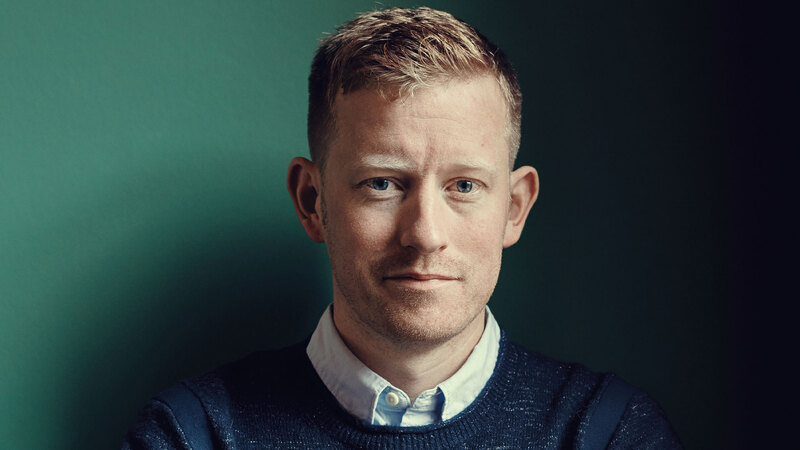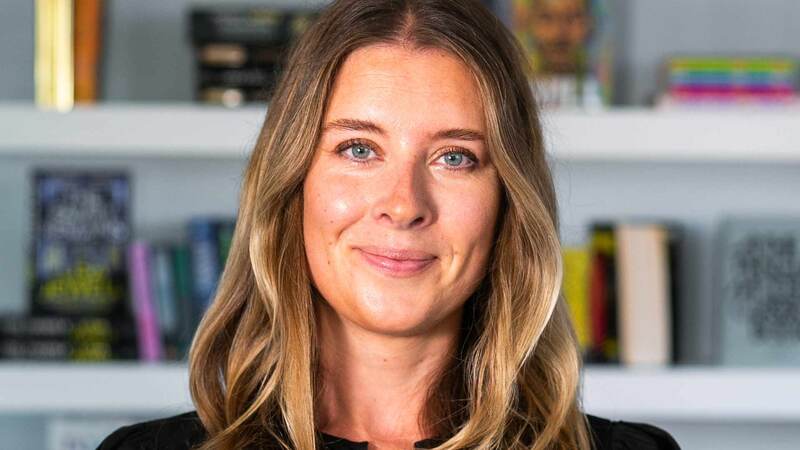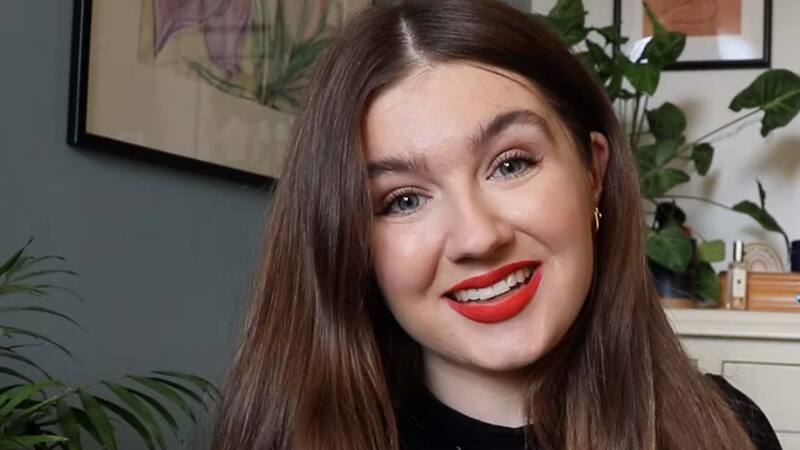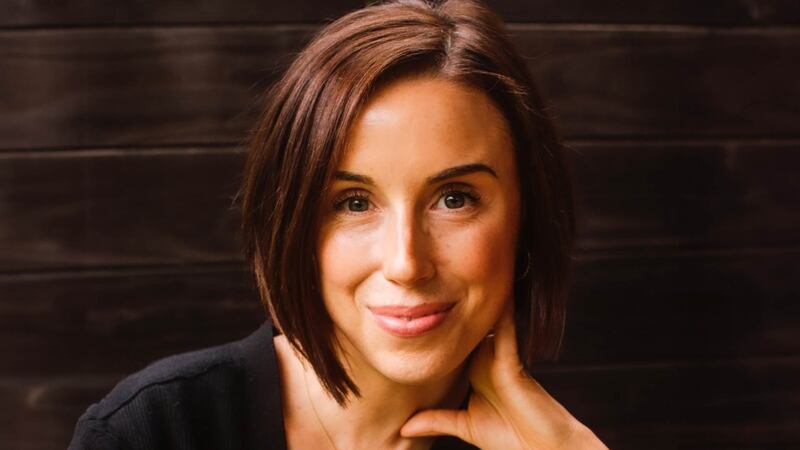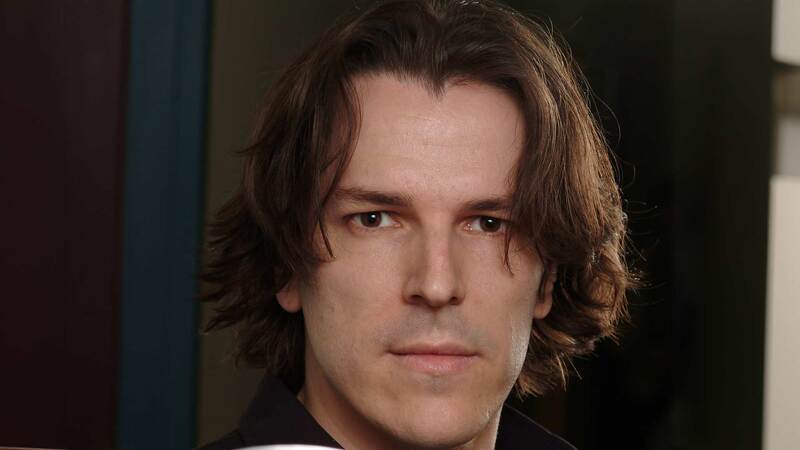You are viewing your 1 free article this month. Login to read more articles.
Daniel Shand wins Betty Trask Prize
Daniel Shand has been named the winner of this year's £10,000 Betty Trask Prize for his darkly comic novel Fallow (Sandstone Press) at the Society of Authors’ annual awards. Meanwhile the first ever self-published novel on the Betty Trask shortlist, Speak its Name by Kathleen Jowitt, was awarded £5,000.
Altogether awards worth a total of £94,000 were handed out at an event at the Army & Navy Club in London on Tuesday evening (20th June) to authors including debuts by writers under 35, poetry, fiction, historical biography.
The judges for the Betty Trask Prize, Simon Brett, Joanne Harris and Michèle Roberts, said Shand's book "works on so many levels" in managing to splice "a road trip through Scotland, a modern Biblical parable and a tense psychological thriller with echoes of Iain Banks and Cormac McCarthy". It is given to authors under the age of 35 for a first novel of "outstanding literary merit".
The society’s president, Philip Pullman, initiated the prize-giving and told the audience that he wants politicians to prioritise the publishing community. He said: “Let’s hope this government – however long it lasts – will manage to take a proper interest in the arts and particularly the literary arts and look after our interests.”
Poet and novelist Ben Okri gave a call to arms for people to appreciate the value of writers despite the many recent tragedies such as the Grenfell Tower fire. He said: “In a time where tower blocks blaze for a week in front of our eyes, when terrorist attacks routinely happen in our city, when immigrants are demonised…when people perish in their rooms because of inadequate safety standards and tower block cladding, in such a time that the idea of sitting down and writing poems in one’s room can seem awfully indulgent thing to do.
“They never give us our freedom, we have to fight for it and win it. Writing well, writing really well so it is still fresh and alive in a hundred years is harder than being the prime minister, the president or almost any other goddam job on earth. Why is it so hard? Because it’s a mystery how it’s done.”
The remaining Betty Trask Award winners, who each received £5,000, are Rowan Hisayo Buchanan, praised for her "painterly eye" in Harmless Like You (Sceptre / Hodder & Stoughton), Nigerian lawyer Elnathan John for Born on a Tuesday (Cassava Books Republic), Kathleen Jowitt for the first ever self-published novel on the shortlist, Speak its Name (Self-published), medical student Rob McCarthy for his "tightly-written, confident thriller" The Hollow Men (Mullholland Books / Hodder & Stoughton) and Barney Norris for his "clever and compassionate" debut Five Rivers Meer on a Wooded Plain (Transworld).
Ben Okri and Philip Pullman
The £4,000 2017 McKitterick Prize, given to an author over the age of 40 for a debut novel, went to David Dyer for The Midnight Watch (Atlantic Books). Hailed "an extraordinarily compelling exploration of guilt and responsibility", it was judged by Frances Fyfield, Aamer Hussein and Christina Koning. They also commended runner-up Austin Duffy for This Living and Immortal Thing (Granta).
The 2017 Somerset Maugham Awards, designed to help young writers (under 35) to enrich their work through foreign travel, were given to Edmund Gordon for his "philosophically brilliant" The Invention of Angela Carter (Chatto & Windus), Melissa Lee-Houghton for Sunshine (Penned in the Margins) deemed "necessary, thrilling, wild and passionate" work, and Martin McInnes for Infinite Grounds (Atlantic) in which the author is said to "draw us into an eerie hallucinatory world". Each writer received £5,000, judged by Jen Campbell, Philip Hensher and Joanna Kavenna.
The 2017 Travelling Scholarships were won by Amy Liptrot, best known for her memoir The Outrun published in 2016 by Canongate Books, Ross Raisin, who teaches creative writing at Goldsmiths University, and James Sheard, a poet for more than 20 years and programme director of Creative writing at Keele University, praised for his "elusive, oblique work".
Raisin, whose novel, A Natural, was published in March by PRH imprint Jonathan Cape), said his scholarship would allow him to visit the Brecon Beacons this week to generate ideas for his new novel as well as Paris later this year. He told The Bookseller: “Winning an award like this starts off as a very happy email that you receive and process in your mind and you realise you can use it to very good effect and the ultimate result is that it enables you to write.
“I liked the fact that this is a travelling scholarship so it takes you away from your desk and encourages you to talk to people, to research, to gather ideas.”
Author Ross Raisin and the Society of Authors' awards secretary Paula Johnson
Overall £35,000 was awarded to poets. The 2017 Cholmondeley Awards, presented to poets for their body of work and contributions to poetry, went to: 2009 T.S. Eliot Prize-winner Philip Gross, praised for his "boundless verbal imagination", Caroline Bergvall; Paula Meehan, whose work was judged "utterly down-to-earth and yet incantatory" no matter its subject; and poet, translator and editor Sasha Dugdale. Each received £2,000, after being assessed by Paul Farley, Mimi Khalvati, Rod Mengham and Pascale Petit.
Celebrating the work of six young poets under 30, the 2017 Eric Gregory Awards were meanwhile given to Granta poetry editor Rachael Allen, for fusing "ambitious poetic voice with a serious engagement with the contemporary world"; Isabel Galleymore, for her "technically excellent, original and imaginative" poems; the "unafraid" Daisy Lafarge, Richard O'Brien, commissioning editor of the Emma Press; Richard Osmond, who also works as a wild-food forager, for his "experimental" poetics; and Merseyside-born poet Mark Pajak, whose use of language was described "coiled tight to spring open with precisely calculated force".
John Bew won the £5,000 Elizabeth Longford Prize for Historical Fiction for Citizen Clem (riverrun/Quercus) and the £1,000 2017 Tom-Gallon Trust Award for a short story was given to Frances Thimann for her "tender, subtle and even suspenseful story" "Shells". Thimann told The Bookseller that the award helped her feel more connected. She said: “Writing at home and trying to put one word in front of another and then to delete the first one can be hard but to come to an evening like this and meet other writers and appreciate writing and understand the context that writing takes makes it more than worthwhile.”




